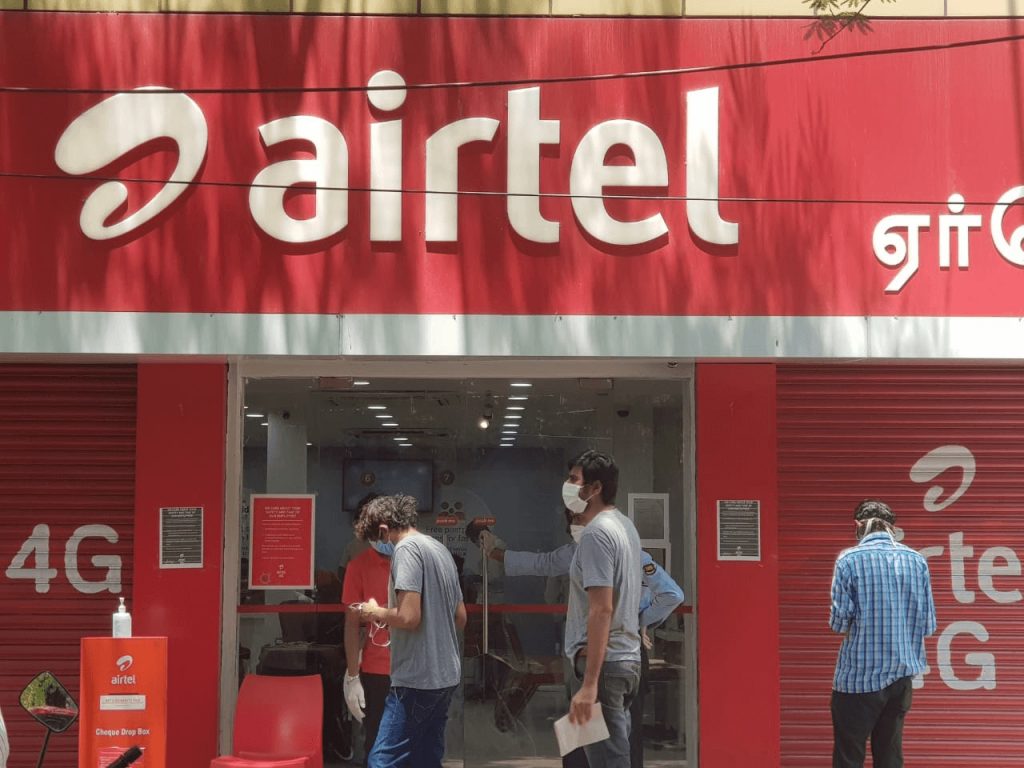
Explainer Briefly Slides Airtel plans to bring its fixed wireless access service (FWA) onto a standalone 5G network by December this year, its managing director Gopal Vittal mentioned during the earnings call for the second quarter of the financial year 2025 ending on September 30 (Q2FY25). “We’re in the midst of doing some trials. We want to just test whether we are able to get better uplink performance with SA [standalone] for a fixed wireless access,” Vittal explained.
A standalone 5G network is not dependent on existing 4G infrastructure to facilitate communications. So far, Airtel has used non-standalone (NSA) 5G infrastructure to provide 5G connectivity. Its key competitor– Reliance Jio– is providing services on a standalone network.
Vittal had mentioned the company’s plans to bring FWA onto a standalone network last quarter as well . He had mentioned that for mobile devices (smartphones) it makes sense to work on an NSA network because such a network allows the device to readily switch from 5G to 4G and vice versa. “I think on our mobile side, the decision or the choice to move from an NSA to SA, is a function of the load on the spectrum bands,” Vittal explained during the Q2FY25 earnings call.
He emphasised that there is no need for Airtel to rush to switch all services to a SA network because doing so would require them to spend about Rs 30-40 crore to buy a sub-gigahertz band. Instead of this, Vittal suggests that the company can wait for 4G spectrum bands to gradually free up and for traffic to move to 5G networks. As this happens 4G spectrum bands will be free for telcos to use for an SA 5G network.
“That is the game plan and the roadmap that will happen over a period of time,” he said. Impact of tariff hike: In July this year , Airtel and other two major private telcos in India increased the cost of their plans. This has resulted in subscriber loss for both Airtel and Jio.
Vodafone Idea (Vi) had indicated that this could be a potential side effect during its previous earnings call, stating that its customers had ported to BSNL after the hike. However, despite subscriber decline, Jio and Airtel both say that the subscriber decline is milder than what they have seen compared to previous rounds of price increases. “As we’ve seen in the past, these trends normalized over two quarters, and we’ve already seen that normalization happen through the month of October,” Vittal explained.
He added that the company did not see customers switching to lower-priced plans because of the tariff hike. “We were expecting two things that happened with the tariff repair. Number one was a greater amount of SIM consolidation than we saw, and the second was a greater amount of down trading.
Both those have not materialized,” he said. Outside of tariff repair, Vittal said that upgrading customers to the next higher plan has been one of the biggest drivers of average revenue per user (ARPU) growth. When asked about the next tariff hike, Vittal said that only time would tell.
“If you take the two axes and plot the rate per GB and ARPU on two different axes and put all the countries of the world on that graph. You’ll find India at the extreme left on both,” he said. As such, he argued that telcos have to opportunity to increase tariff further.
Launching embedded insurance under Airtel Finance: Vittal mentioned that as of this quarter, Airtel Finance has served over a million customers and has an annualised loan disbursal rate of Rs 3000 crore. Airtel Finance’s total assets under management (AUM) stand at Rs 2500 crore. Vittal mentioned that the company has launched a range of financial service products including fixed deposits in partnership with non banking financial companies (NBFCs).
“Going ahead, we’ll be launching embedded insurance as well,” he mentioned. For context, embedded insurance is a way to purchase insurance as a part of a product – for instance, getting travel insurance from a travel booking site. “We’re building Airtel Finance as a strategic asset for the group, and we’ll keep investing in and growing this business,” Vittal added.
Discussing the financial segment of Airtel further, Vittal mentioned that Airtel Payments Bank has over 85 million monthly transacting users and is growing by 20% sequentially. Its annualised revenue run rate is over Rs 2600, grow ing 58% on a year-on-year basis. Deposits in Airtel Payments Bank stood at Rs 2950 crore, growing by 43% on a year-on-year basis.
Increased investment in B2B offerings: The company wants to build solutions specifically suited for business customers and as such is accelerating investments in its offerings such as its Communication Platform as a Service (CPaaS), Internet of Things (IoT), cloud services, and security solutions. “This will help us lock customers for long[er] and enable us to win a higher share of wallet,” Vittal explained. He noted that these B2B solutions have lower margins but grow much faster.
“I think the challenge for the business or the objective for the business is to really step up the growth in the business and not worry singularly about margin, but really worry a lot more about absolute profit growth because that’s where the market is going,” Vittal added. On the security front, Airtel has partnered with Zscaler (a cloud security platform) to create a cybersecurity solution for enterprises. The company is also partnering with multiple managed service offerings to help provide solutions for recovery in case of cyber attacks.
“Our customer base in both these services has doubled with strong revenue growth in last year and expected to sustain the momentum going forward,” Vittal added. On the cloud side, Airtel has signed off on an investment for a more economical cloud solution. Vittal said that Airtel will cater this solution to those businesses with workloads “that may not need such elastic requirements as the public cloud offers.
” Airtel’s spam solution: Vittal mentioned that newly launched Airtel’s spam solution is showing promising results and has been able to significantly reduce spam calls. “Our solution has been able to identify over 100 million potential spam calls and more than 3 million unique spammers in the network,” he added. Driving broadband customer base through FWA: Airtel plans to expand connectivity in fiber-dark areas (areas where there is no provision for wired internet) from fixed wireless access services.
“I do want to reiterate that fiber will always offer a superior experience, and our expansion plan is predicated upon eventually converting our fixed wireless access to fiber once fiber reaches the location,” Vittal said. During the earnings call, an investment firm representative asked Vittal to compare the performance of Airtel’s fiber services and FWA. To this, Vittal said that both the services are comparable to each other today.
“In terms of customer response, I would say that given the rather empty nature of the 5G network, it’s a good response and it’s a good experience. We’re able to deliver the speeds that we’re promising both on uplink and downlink,” he added. Vittal has previously noted that currently there are no apps that fully utilize the features offered by 5G networks (high speeds, low latency and massive capacity).
By the empty nature here, he is probably referring to the lack of 5G-specific applications. Airtel Black sees growth back by its streaming offerings: Vittal mentioned that Airtel Black, the company’s bundled broadband plan, has grown by 65% in the past year (FY24). He explained that over 50% of the broadband customers that the company acquires are through the Airtel Black plan.
“We believe this has significant headroom for growth going ahead. To further strengthen our entertainment portfolio, we announced a partnership with Apple on TV and music,” he said. Further, Airtel’s streaming service aggregator Xtreme has also witnessed growth, with its customer base rising by 55% in the past year.
Also read:.













